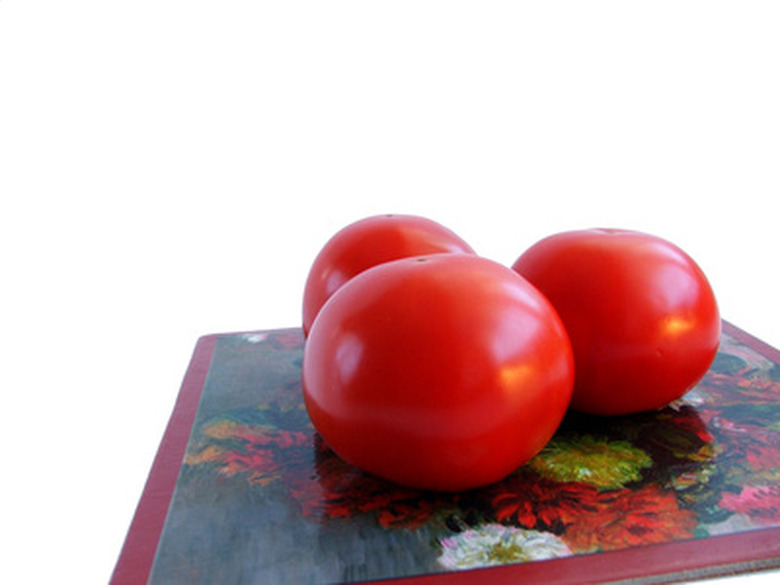The Effects Of Salt Water On Tomato Plants
Too much salt water causes most plants to die. In plants, salt interferes with osmosis at the roots, preventing them from taking up water and making them wither. Since many fertilizers are salt-based, the salinity of 25 percent of the world's irrigation water is now higher than most plants can live with. Tomato plants, however, are somewhat hardy to saline, and may actually benefit from brackish water.
Salinity
Salinity in soil is measured by passing an electrical charge between two electrodes with a soil sample in between. Salt increases conductivity, so the salinity of the soil can be measured by how well the electricity transmits between the two points. Moderate salinity is measured in deciSiemens per meter (dS/m). Tomato plants can withstand moderately saline soil from 4 to 6 dS/m.
- Too much salt water causes most plants to die.
- Salt increases conductivity, so the salinity of the soil can be measured by how well the electricity transmits between the two points.
Germination
Salt in water or soil has a negative effect on germination for almost all terrestrial plants. The salt prevents the fragile seed from taking in water, and tender young roots dry up easily if there is too much salt present. This is because salt affects the process of osmosis, where the low concentration of water and nutrients in the soil moves into a higher concentration of water and nutrients in the roots. If there is too much salt present in the soil, osmosis is blocked and water can't enter the roots.
Seawater Irrigation
According to the April 2007 issue of the "Journal of Agricultural and Food Chemistry," Italian scientists discovered that a diluted seawater solution actually had a beneficial effect on cherry tomato fruits, probably because of the slight stress caused on the plants. The plants were watered with 10 percent seawater and fresh water after they had been growing for three weeks and were past the stage where the seawater would kill them.
The red-ripe tomatoes were tested for flavor and nutrients, and the scientists discovered significant improvements in both. Although the tomatoes' weight was slightly lower than the control group, they were sweeter and tastier because of the increased sugars and acidity. They were also higher in ascorbic acid, vitamin E and antioxidants.
- Salt in water or soil has a negative effect on germination for almost all terrestrial plants.
- This is because salt affects the process of osmosis, where the low concentration of water and nutrients in the soil moves into a higher concentration of water and nutrients in the roots.
